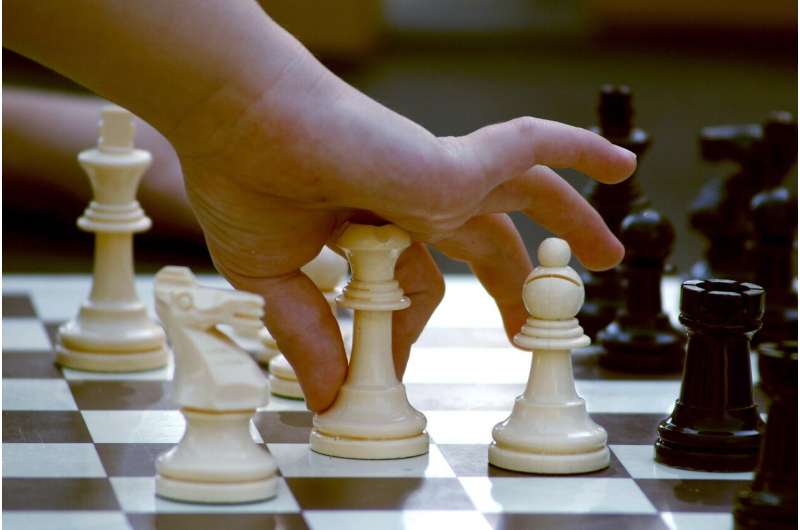April 20, 2021 report
Teaching children to play chess found to decrease risk aversion

A trio of researchers from Monash University and Deakin University has found that teaching children to play chess can reduce their aversion to risk. In their paper published in Journal of Development Economics, Asad Islam, Wang-Sheng Lee and Aaron Nicholas describe studying the impact of learning chess on 400 children in the U.K.
Playing chess has long been considered a game for those with good logical skills, but past research has also shown that good players must also be able to take risks when necessary—sacrificing a knight, for example, if it looks like a move that will ensure victory. In this new effort, the researchers wondered what sort of mental impact playing chess might have on people who play the game in their youth. To find, out, they enlisted 400 school children (ages 15 and 16) in the U.K. who had never played chess before and training them to play chess. Each child was then tested over a year to detect any changes in their cognitive abilities.
The researchers found that most of the children experienced a decrease in risk aversion in a variety of game playing scenarios. They also noticed that playing chess also led to better math scores for some of the students and improvements in logic or rational thinking.
The researchers note that the game of chess is very well suited to building confidence in risk taking when there is reason to believe it might improve an outcome. In contrast, students also learned to avoid taking risks haphazardly, finding that such risks rarely lead to a positive outcome. They also note that the line between good and poor risk-taking is especially evident in chess, which means that the more a person plays, the sharper their skills become. The researchers also found that the skills learned during chess playing appeared to be long lasting—most of the children retained their decrease in risk aversion a full year after the end of their participation in the study. The researchers also note that they did not find any evidence of changes in other cognitive skills, such as improvements in grades other than math or general creativity.
More information: Asad Islam et al. The Effects of Chess Instruction on Academic and Non-cognitive Outcomes: Field Experimental Evidence from a Developing Country, Journal of Development Economics (2021). DOI: 10.1016/j.jdeveco.2020.102615
© 2021 Science X Network





















